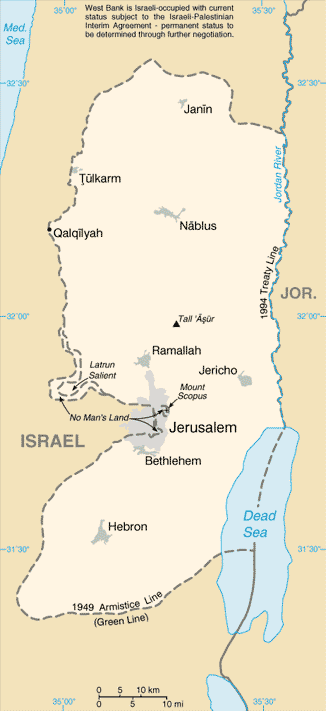The day of the Shemitah [1] came and went. Skeptics feel justified in their skepticism, that life goes on just as it did before. Or in Bible language "For ever since the fathers fell asleep, all continues just as it was from the beginning of creation." 2 Peter 3:4 Maybe one needs to look in the right place for events associated with the Shemitah, which according to Jonathan Cahn was Sept 13, 2015. While the focus of the Shemitah warnings were given to America, perhaps we should also look at Israel.
Al Aqsa Mosque - ITV |
ITV REPORT 13 September 2015 at 9:12am [2]
Violence breaks out at al-Aqsa mosque as Israeli forces storm building in search of Palestinian suspects
I have to admit that's not the shaking I expected, in fact Israeli/Palestine conflicts don't seem unusual. What happened next? Due to the violence, a month later France proposed the UN place "international observers" on the Temple Mount - World Bulletin [3]. You can read a more cynical take on France's proposal in this article entitled "This Time Peacekeepers Won’t Rape Anyone, We Promise" - PreOccupied Territory [4]. The proposal did not pass the UN. And Israel opposed it. United With Israel [5] characterized the proposal with the headline "France stabs Israel in the back". It appears France is assuming Israel is the guilty party.
This isn't the first move France has taken against Israel at the UN. In Dec 2014, France supported establishing "the State of Palestine" and requiring Israel to return land captured in the 1967 war - RT News [6]. In fact the French Parliament had already recognized Palestine earlier.
On Tuesday evening, the French National Assembly came out in favor of recognition of “Palestine” as a state. The decision, one of largely symbolic value, is further compounded by the fact that in recent months Spain, Britain, Ireland and Sweden have also made similar proclamations, indicative of the growing international polarization over the conflict. Dec 3, 2014 - United With Israel [7]
And the Palestinians? Their goal is to destroy Israel. Here is what Mahmoud Abbas said on Sept 16, 2015, three days after violence erupted on the day of the Shemitah.
The Al Aqsa mosque is ours and they (Jews) have no right to defile it with their filthy feet. We will not allow them to do so. We bless every drop of blood that has been spilled for Jerusalem, which is clean and pure blood, blood spilled for Allah, Allah willing. Every martyr will reach paradise, and everyone wounded will be rewarded by Allah. MEMRI TV [8]In short, Allah will bless you for your violence (against Israel). And this is no surprise, remember that the HAMAS charter really does call for the destruction of Israel - Hamas in the Bible [9].
As You Do To Israel
 |
| Israel's West Bank Wikipedia |
Try to destroy Israel, you will be destroyed. Try to divide Jerusalem, you will be cut to pieces. Curse Israel, you will be cursed. Reject Israel, you will be rejected. God made a promise to Israel, this World combined are too weak and powerless to change that. Russel Lang - Times of Israel [10]
The Eiffel Tower has gone dark following
the attack on the City of Light.
|
Where is the terror coming from?
Historically, the Assyrians are the fathers of terror. According to The Ancient History Encyclopedia [14]
"By these methods of siege and horror, technology and terror, the Assyrians became the unrivalled masters of the Near East for five centuries".
Here's how Jonathan Cahn described them.
The Assyrians made terror into a science. They systematized it, perfected it, and employed it as no other people or kingdom had ever done before. They burned cities to the ground, mutilated their prisoners, flayed alive those who rebelled against them, and nailed their skins to the wall for public display. The Assyrians were the masters of terror.” The Harbinger [15]
While there is some disagreement on this point, but the consensus is that the descendants of ancient Assyria live in Iraq and Syria today. ISIS means Islamic State of Iraq and Syria. Ancient Assyria terrorized ancient Israel and Judah, their descendants are doing the same to Israel, France, the USA, Germany, Sweden, and more today. Ancient Assyria used public beheadings to terrorize, ISIS uses the internet to publicize their beheadings.
The French Connection
| Syrian Refugees in Europe CNN |
Koenig documented US disasters only, but consider terror attacks in London, Madrid, and now Paris. Could they be the direct result of siding against Israel, pressuring Israel to trade land for peace? Cahn describes the terror as a return of the second harbinger. You can watch his analysis here - Shocking France and Harbinger Connections [18]. If the concern over terror attacks seem exaggerated, consider that there have been 27,649 deadly Islamic attacks since 9/11/2001, not counting rapes. Twenty seven thousand!!! The Religion of Peace [19]
How to Heal the Land
A prudent man foreseeth the evil, and hideth himself; but the simple pass on, and are punished. Proverbs 22:3 and Proverbs 27:12
If my people, which are called by my name (Christians), shall humble themselves, and pray, and seek my face, and turn from their wicked ways; then will I hear from heaven, and will forgive their sin, and will heal their land. 2 Chron 7:14
References
1. http://jlfreeman-1.blogspot.com/2015/07/shemitah-she-what.html
2. http://www.itv.com/news/2015-09-13/violence-breaks-out-at-al-aqsa-mosque-as-israeli/
3. http://www.worldbulletin.net/news/165369/france-pushes-for-intl-troops-on-temple-mount
4. http://www.preoccupiedterritory.com/this-time-peacekeepers-wont-rape-anyone-we-promise/
5. http://unitedwithisrael.org/france-stabs-israel-in-the-back-at-un/
6. https://www.rt.com/news/251833-middle-east-un-peace-israel/
7. http://unitedwithisrael.org/french-parliament-recognizes-palestinian-state/
8. http://www.memritv.org/clip/en/5080.htm
9. http://jlfreeman-1.blogspot.com/2014/08/hamas-in-bible.html
10. http://www.timesofisrael.com/france-preparing-draft-for-un-resoluton-on-palestine/
11. http://www.cnn.com/2015/01/13/middleeast/paris-kosher-store-funeral/index.html
12. http://www.cnn.com/2015/01/13/middleeast/paris-kosher-store-funeral/index.html
13. https://en.wikipedia.org/wiki/List_of_terrorist_incidents_in_France
14. http://www.ancient.eu/Assyrian_Warfare
15. http://www.amazon.com/The-Harbinger-Ancient-Mystery-Americas/dp/161638610X
16. http://www.watch.org/
17. http://www.amazon.ca/Eye-Facing-Consequences-Dividing-Israel/dp/0971734704
18. https://www.youtube.com/watch?v=D10qrKK9xwA
19. http://www.thereligionofpeace.com/


